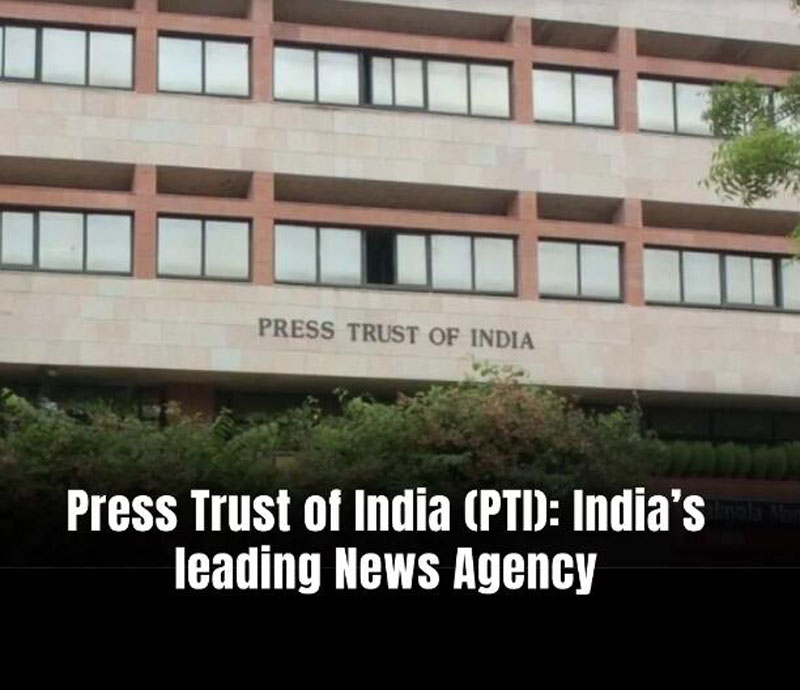The BBC reported on October 30 that Wikipedia has been embroiled in a legal dispute in India. Some analysts say the case could affect the operation of the well-known “online encyclopedia” in India.
India’s largest news organization, the Press Trust of India (PTI), has reportedly filed a lawsuit against Wikipedia, claiming that the content of the ANI entry in the search engine Wikipedia, which is operated by the organization, constitutes defamation, and claiming Rs. 20 million (Rs. 1.69 million) in damages from the foundation. The lawsuit appears to raise significant issues of content accuracy, local compliance and regulatory scrutiny, particularly as they relate to a global platform operating in one of the world’s largest Internet markets.
Background: PTI’s Controversy with Wikipedia
As India’s most prominent news organization, PTI plays a crucial role in shaping public knowledge by providing news to almost all major Indian media outlets. With a reputation for reliability, PTI’s content reaches millions of people in India and around the world. As a result, any case involving PTI attracts considerable attention and scrutiny, especially in terms of content authenticity or reputation.
Wikipedia, on the other hand, is a widely used, user-generated online encyclopedia that operates on the basis of content contributed by volunteers. However, this decentralized model occasionally leads to inaccurate content, particularly on culturally or politically sensitive topics. The lawsuit highlights a long-standing challenge for Wikipedia: how to ensure that its platform respects local norms and maintains high standards of accuracy, especially in countries with different regulations on information distribution and content.
In its entry on ANI, Wikipedia reports that Indian media outlets Caravan and The Ken claimed that ANI has become a “leading organization” over the past few decades – especially after the Bharatiya Janata Party (BJP)’s election victory in 2014. –has become “the mouthpiece of the Indian government”. The search results also showed that ANI “controls a fake news network consisting of numerous fake news websites used to support the government of India and spread propaganda against Pakistan”, which ANI believes to be completely false and has asked Wikipedia to remove the page in question. The Wikimedia Foundation has said that the content on the site is “managed entirely by volunteers over whom the Foundation has no control”.

The Hindu reported that hearings in the case began in July, and on August 20, the Delhi High Court asked Wikipedia to disclose to ANI information about the editors of the “defamatory content.” On September 5, the Delhi High Court informed Wikipedia of the “consequences of non-compliance with the court’s order to disclose. On September 5, the Delhi High Court informed Wikipedia of the “consequences of non-compliance with the court’s disclosure order”. The court issued a statement saying that if Wikipedia “does not like India, it should not operate in India” and that “the Government of India can be asked to block Wikipedia in India”.
Potential Impact on Wikipedia’s Operations in India
If the court upholds the PTI’s claims, Wikipedia may need to take new compliance measures in India. This could mean strengthening validation protocols for Indian-specific topic contributions, imposing stricter guidelines for India-related citations, and even working with local organizations like PTI to ensure factual accuracy.
If Wikipedia enacts stricter validation requirements, users may notice longer delays in updating content or changes in the accessibility of content. Some information may be restricted according to local regulations, which could affect Wikipedia’s well-known timeliness and openness. These measures may help protect Wikipedia’s legitimacy, but they may also affect its image as an open, collaborative resource.
This case may set a precedent for other countries to enforce similar requirements on Wikipedia and other user-generated platforms. While such regulation could improve the accuracy of content, it could also increase Wikipedia’s operational challenges and expenses, especially if other countries adopt India’s regulatory approach.
The litigation between PTI and Wikipedia highlights a critical moment in India’s digital information landscape. As Wikipedia responds to the PTI’s demands for accuracy and accountability, the case has the potential to influence how global platforms balance content freedom with local regulations. If this case sets a legal precedent, it could affect not only Wikipedia’s future in India, but also the operations of other global platforms in the region, sparking new debates about how best to manage accuracy, accountability, and freedom of access to knowledge online.
Ultimately, this case highlights the challenges digital platforms face in a rapidly evolving regulatory environment. Wikipedia and similar platforms may need to take a more nuanced approach to content management in order to align with national standards while staying true to their mission of open, collaborative knowledge sharing.











